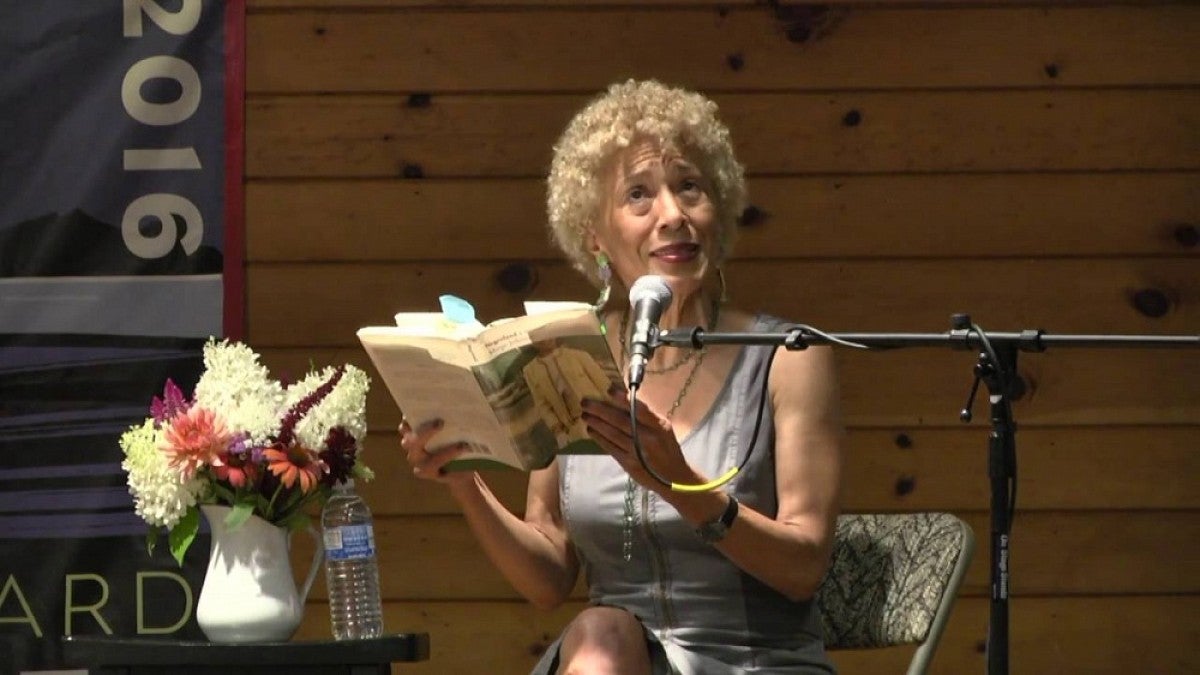UPDATE: Columbia professor Margo Jefferson's lecture, "The Ethics and Aesthetics of Cultural Criticism," on May 10 in Eugene and May 11 in Portland has been cancelled. The Oregon Humanities Center hopes to reschedule the event in the upcoming academic year.
The overarching message of Margo Jefferson’s memoir, “Negroland,” is as clear as its last line.
“Go on.”
The memoir, a 2016 National Book Critics Circle Award winner, centers around growing up in the upper tier of black society in Chicago during the 1950s and 1960s, and is an open, candid narrative that is an education as much as it is a story. Documenting her parents’ determination to provide the best for their children despite discrimination, social attitudes and seemingly endless obstacles, Jefferson inherits that tenacity and passes it to her readers: “Go on.”
It is also the focus of Jefferson’s 2016-17 Kritikos Lecture In the Humanities, "The Ethics and Aesthetics of Cultural Criticism," May 10 in Eugene and May 11 in Portland, sponsored by the Oregon Humanities Center.
“The book’s impact is cumulative. Jefferson gently (and genteelly) invites the reader to journey with her through her recollections of her ‘privileged’ world growing up, and by the end one finds oneself profoundly transformed by the experience,” said Julia Heydon, associate director of the Oregon Humanities Center.
As a professor, Jefferson sees the opportunity for students to experience different perspectives as one of the best in their lives.
“What is available to college students is this ability to adventure with your mind,” she said from her office at Columbia University, where she is a professor of fiction writing and poetry. “To encounter all kinds of disciplines and experiences that you know might be alien to you that really do challenge you.”
A Pulitzer Prize winner for her writing in The New York Times and an outspoken supporter of intersectionality — the study of relationships from a variety of perspectives — Jefferson recalls the day after the last presidential election and the reaction she saw in her students.
“They felt very challenged about what their work and their role as writers would be in the future,” she said. “They really started thinking about how their voice could diversify and spread, be developed.”
That is exactly the way Jefferson defines the humanities and sees them as a way to develop a critical mind and heart, and also help establish multiple identities and perspectives in an otherwise challenging and charged political atmosphere.
“I'm interested in how all of the humanities, from the social sciences to the arts can collaborate in giving us a far more varied and textured sense of multiple identities — which are national identities, too — as well as our individual and global identities,” Jefferson said.
It’s not just empathy or sympathy, she stressed, but “working with differences and what they mean, then finding ways to analyze and live with them rather than to always be frightened and antagonized” by them.
She knows that’s difficult to navigate but believes society needs as much "watchdogging" as possible, including intense investigative journalism and strong editorial writing. And, she adds, her students have realized the need to become politically active.
“They are thinking, ‘Okay, I am going to have to give more of my personal time to political work than I would have thought three months ago,’” she said. “And that's very practical, that's very real. I help to embolden them. They’re thinking, ‘I don't know how this will affect my writing, but this is how I must go forward.’”
Jefferson will speak at 7:30 p.m. May 10 at Lillis Hall in Eugene and at 7:30 p.m. May 11 at the White Stag Block, 70 NW Couch St. in Portland. Both events are free and open to the public.
—By Laurie Notaro, University Communications


